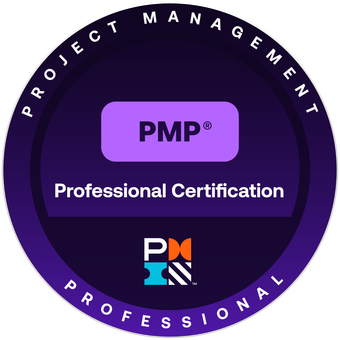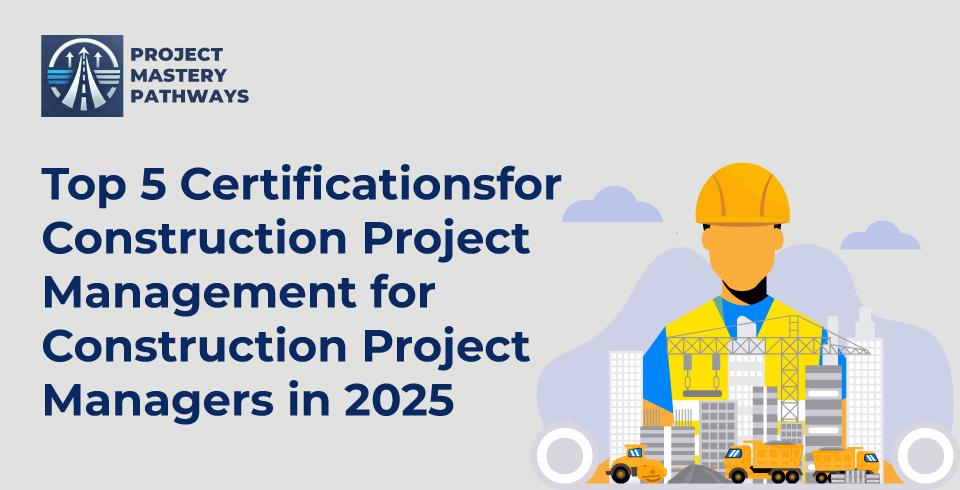The construction industry is experiencing unprecedented growth, but with it comes an urgent need for skilled professionals who can navigate complex projects while meeting increasingly demanding standards for sustainability, safety, and efficiency. Employment of construction managers is projected to grow 9 percent from 2023 to 2033, much faster than the average for all occupations. About 45,800 openings for construction managers are projected each year, on average, according to the U.S. Bureau of Labor Statistics. However, there’s a critical gap: many construction professionals lack the formal credentials that distinguish them as leaders in project management excellence.
If you’re a construction project manager looking to advance your career, increase your earning potential, or simply validate your expertise in an increasingly competitive market, you’re facing a crucial decision about which certifications will provide the greatest return on investment. Certification is one of the best ways to increase your salary as a construction project manager. You can expect to earn an average of $89,230 more per year when you are certified. By the end of this comprehensive guide, you’ll understand the five most valuable certifications for construction project managers in 2025, their specific benefits, and how to strategically choose the right credential to accelerate your career trajectory.
Why Construction Project Management Certifications Are Essential in 2025
The construction industry has evolved dramatically over the past decade, with project complexity increasing alongside demands for sustainable building practices, advanced technology integration, and rigorous safety standards. Modern construction project managers must demonstrate competency not only in traditional areas like scheduling and budgeting but also in emerging fields such as green building, digital construction technologies, and integrated project delivery methods.
CCMs earn about 10% more than CMs who do not hold the credential, highlighting the tangible financial benefits of professional certification. Beyond salary increases, certifications serve as a quality benchmark that clients, owners, and stakeholders rely on when selecting project teams. Many owners list preferences for CCMs on their teams in RFPs and RFQs, making certification a competitive necessity rather than just a career enhancement.
The term “certification” in construction project management refers to a formal credential that validates your knowledge, skills, and experience through rigorous examination and documented work history. Unlike simple training programs, these certifications require ongoing professional development and demonstrate your commitment to maintaining current industry standards and best practices.
The Five Most Valuable Construction Project Management Certifications for 2025
1. Project Management Professional (PMP) Certification

The PMP certification from the Project Management Institute (PMI) remains the gold standard for project managers across all industries, including construction. PMP certified respondents reported earnings 33% higher, on average, than those without PMP certification, making it one of the most financially rewarding credentials available.
Key Benefits for Construction Professionals:
- Universally recognized across all construction sectors and geographic regions
- Provides comprehensive project management framework applicable to any construction project size or complexity
- Demonstrates mastery of project management processes essential for construction delivery
- Opens doors to senior project management and program management roles
Requirements: Secondary degree with 7,500 hours of project management experience and 35 hours of project management education, or four-year degree with 4,500 hours of project management experience and 35 hours of project management education.
For construction professionals, the PMP certification bridges the gap between construction expertise and formal project management methodology, providing the structured approach needed to manage increasingly complex construction projects. Many professionals find that combining PMP certification with specialized construction knowledge creates an unbeatable combination for career advancement.
2. PMI Construction Professional (PMI-CP) Certification
The PMI-CP is the only internationally recognized certification that offers an in-depth curriculum on the construction industry. This specialized certification is designed specifically for construction professionals and addresses the unique challenges and processes inherent in construction project management.
Key Benefits for Construction Project Managers:
- Industry-specific focus on construction processes, contracts, and delivery methods
- Addresses sustainability demands and current industry dynamics
- Developed by construction industry experts for real-world application
- Perfectly complements existing construction experience with formal project management credentials
Requirements: 3 years of on-the-job experience in construction projects or built environment projects (must be within the past 10 years).
The PMI-CP certification fills a critical gap by providing construction-specific project management knowledge that generic certifications cannot address. It covers areas such as construction contracts, delivery methods, lean construction principles, and sustainability practices that are essential for modern construction project managers.
3. Certified Construction Manager (CCM) Certification
The Certified Construction Manager® (CCM®) recognizes professionals who have chosen a career in construction management and voluntarily met the prescribed criteria of the construction management certification program with regards to formal education, field experience, and demonstrated capability. The CCM is accredited by the American National Standards Institute (ANSI) National Accreditation Board (ANAB) under the International Organization for Standardization’s 17024 standard.

Key Benefits for Construction Project Managers:
- Industry-specific credential that validates construction management expertise
- Demonstrates ability to manage costs, safety, and project delivery
- Preferred credential for many public and private construction contracts
- PayScale reports the average base salary for a CCM is $99,000, significantly higher than non-certified construction managers
Requirements: Combination of education and experience totaling 8 years, with specific requirements for formal education in construction or related fields and documented construction management experience.
The CCM certification is particularly valuable for construction project managers who want to establish credibility in the construction industry specifically, as it focuses exclusively on construction management competencies and is recognized by construction owners, contractors, and industry associations.
4. LEED Accredited Professional (LEED AP) Building Design + Construction
With sustainability becoming a critical requirement in modern construction, LEED certification has evolved from a nice-to-have to an essential credential. There is a huge push for sustainability in the construction industry, with insights from the Sustainable Futures Report suggesting that 70 percent of modern construction projects involve sustainability targets.
Key Benefits for Construction Project Managers:
- Addresses the growing demand for sustainable construction expertise
- Essential for projects pursuing LEED certification, which includes most major commercial and institutional construction
- Demonstrates knowledge of green building practices, energy efficiency, and environmental considerations
- LEED AP Building Design + Construction (LEED AP BD+C) is typically the best option for this field, meant to serve those with “expertise in the design and construction phases of green buildings”
Requirements: Must first pass the LEED Green Associate exam, then pass the LEED AP BD+C specialty exam. The credential requires ongoing continuing education to maintain.
For construction project managers, LEED AP BD+C certification is becoming increasingly essential as clients and owners demand sustainable building practices. This certification provides the knowledge needed to manage the complex requirements of green building projects and positions you for the growing market of environmentally conscious construction.
5. Certified Associate Constructor (CAC) or Certified Professional Constructor (CPC)
The American Institute of Constructors (AIC) offers two levels of constructor certification that validate expertise in construction processes and management. Certification for a construction project manager signifies more than meeting basic requirements for managing a project. It demonstrates a commitment to uphold ethical standards, proficiency in project management, and an ambition for continuous learning.
Key Benefits for Construction Project Managers:
- Industry-recognized credential specifically for construction professionals
- Validates construction knowledge, safety practices, and project delivery capabilities
- CAC serves as entry-level certification, while CPC represents advanced professional competency
- Demonstrates commitment to construction industry professional standards and ethics
Requirements:
- CAC: Four-year construction-related degree or equivalent experience, plus passing comprehensive examination
- CPC: Requires CAC certification plus additional experience and examination
These certifications are particularly valuable for construction project managers who want to establish credibility within the construction industry and demonstrate their commitment to professional excellence in construction management practices.
Strategic Certification Planning for Maximum Career Impact
When selecting certifications for your construction project management career, consider your current experience level, target roles, and long-term career objectives. Many successful construction project managers follow a progressive certification path, starting with foundational credentials and advancing to specialized certifications as their careers develop.
For early-career professionals, beginning with either the CAC certification or pursuing the PMI-CP (if you have sufficient construction experience) provides a solid foundation. Mid-career professionals often benefit from pursuing the PMP certification to add formal project management methodology to their construction expertise, while the CCM certification validates advanced construction management capabilities.
The LEED AP BD+C certification should be considered essential for any construction project manager working on commercial, institutional, or high-profile residential projects, as sustainability requirements are now standard rather than exceptional. This certification complements other project management credentials and opens doors to the growing market of green construction projects.
Consider that understanding different project management certifications can help you make informed decisions about which credentials align best with your career goals and the construction sectors where you want to work.
The construction project management field offers exceptional opportunities for professionals who invest in the right certifications. As of January 2025, this data suggests the average annual pay for a construction project manager ranges from $81,313 to $104,900, with certified professionals earning significantly more than their non-certified counterparts.
Success in construction project management increasingly requires formal validation of your expertise through recognized certifications. Whether you choose to pursue the comprehensive project management foundation provided by PMP certification, the construction-specific expertise of PMI-CP or CCM credentials, the sustainability focus of LEED AP BD+C, or the industry recognition of AIC constructor certifications, each pathway offers unique advantages for career advancement.
The key is to align your certification choices with your career objectives and the market demands in your geographic region and construction sector. By strategically pursuing the right certifications, you’re not just enhancing your credentials – you’re positioning yourself as a leader in an industry that desperately needs skilled, certified professionals to manage the complex construction projects that will shape our built environment.
Ready to take your construction project management career to the next level? Start building your certification roadmap today. For comprehensive guidance on project management principles and certification preparation, explore my educational resources on PMPwithRay where I provide detailed insights into project management best practices. You can also accelerate your learning through my specialized training programs on Udemy, including my PMP Certification Exam 35 PDU Training and Project Management Basics for Project Managers courses that provide the foundation for advanced construction project management success.

